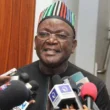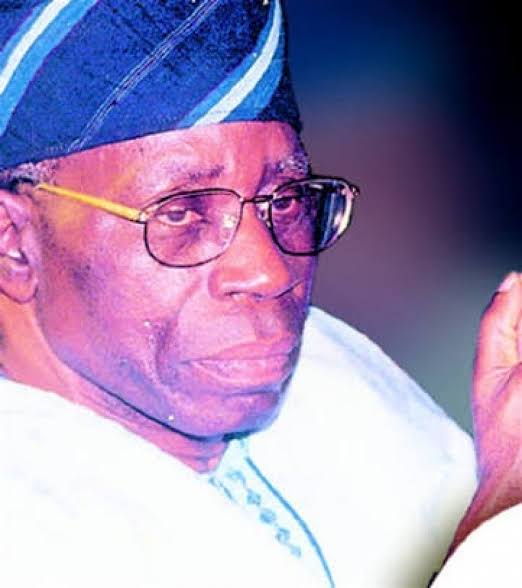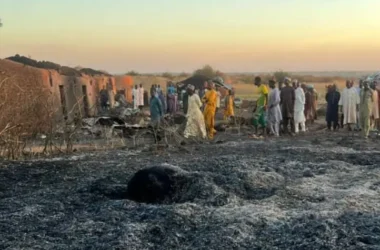Former Military Governor of the Old Western State, Retired Brigadier General Oluwole Rotimi, has denied claims that he warned the late Bola Ige of consequences if he left former President Olusegun Obasanjo’s administration.
Rotimi addressed the issue during a press conference in Ibadan on Thursday as part of his 90th birthday celebration. The controversy arose from a statement made by former Osun State Governor, Chief Bisi Akande, in a podcast. Akande had claimed that Rotimi cautioned Ige against leaving Obasanjo’s government, implying there would be consequences.
Ige, who served as Attorney-General of the Federation and Minister of Justice under Obasanjo, was assassinated at his Bodija residence in Ibadan on December 23, 2001. His murder remains one of Nigeria’s most controversial political killings.
Rotimi clarified that while he did advise Ige not to resign, he never suggested any consequences would follow. He explained that Obasanjo had personally asked him to speak to Ige about remaining in the administration.
“There was a lot of pressure on Ige to leave the Obasanjo government from people, including Prof. Wole Soyinka,” Rotimi said. “I now advised Chief Bola Ige, ‘Please, don’t do it. Obasanjo did not make a mistake in appointing you a minister in his government, and he appreciates your usefulness to his government.’ I did not say if he left, something would happen to him.”
Rotimi firmly stated that Akande’s claim misrepresented what actually happened. He questioned how he could have predicted any consequences for Ige when he was not even part of the government.
He also criticized the handling of the investigation into Ige’s murder, saying authorities should have conducted a more thorough probe. He noted that focusing only on Ige’s security detail limited the investigation from the start.
“They should have gone beyond those who are his security personnel,” he said. “If you limit your investigation right from the beginning, how do you deal with other facts hanging around, which nobody thought about?”
Rotimi expressed sadness over Ige’s death and the loss it represented for Nigeria. He acknowledged that many Nigerians had high hopes for Ige, but as someone outside of government, there was little he could do.










